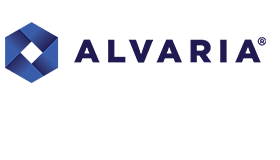As the COVID-19 pandemic continues its grip on society, how soon will it be before the contact centre of the past fades into obscurity with subtle references as your agents and managers reminisce about the good old days? Has it happened already?
As security becomes more defined, administration tools and emerging video platform integrations will send hiring, monitoring, training, and continued onboarding into hyperdrive.
Contact centre leaders and managers routinely go from planners to architects to project managers and back all in the same meeting. Remote and hybrid call centre flexibility is giving brands the ability to serve more customers while maintaining and maximizing CX and SLAs.
As we get 2022 rolling, we are focused on providing customized infrastructure and technology to make remote work even more seamless, benefiting the customer, the agent, the administration, and the organization.
Hosted workforce engagement management (WEM) solutions on-premises was clearly the most viable option in the past, and there are reasons businesses may try to hold on a bit too tight– security is always a top priority when dealing with data.
However, it’s become quite clear that for any business to not only survive, methodologies and innovations, including moving to the cloud, that increase workforce efficiencies will always have a long-term financial benefit.
When we talk about the major challenges facing call centres and our industry moving forward, it comes as no surprise that the major challenge to providing superior customer service comes down to call centre staffing.
As industries across the board experience what many economic experts have deemed “The Great Resignation,” many workers are leaving their jobs in search of more money, more flexibility and more happiness.
Many are rethinking what work means to them, how they are valued, and how they spend their time. Luckily for our industry, a hybrid setting now creates opportunities and permits part-time staffing for a whole segment of the population with physical disabilities, childcare issues or poor commuting options.
With more part-time workers, contact centres also have a more agile workforce that can ramp up and down quickly, matching contact centre staffing to call volumes. Of course, the success of staffing remote agents is highly dependent upon excellent interaction management and WEM software.
Contact centre managers must have adequate staffing in order to meet demand, and ensure every agent has the time needed to resolve issues and perform required tasks.
Scheduling supervisors must ensure they schedule call centre agents with specialized and honed skill sets so that any customer can get quality support regardless of the issue.
As we look to the immediate future, it becomes clear that call centres are uniquely positioned to take advantage of the increased emphasis on-work-life value and balance; and it starts with the rapid and continuing acceleration of WFM technology and digital communications strategies.
This blog post has been re-published by kind permission of Alvaria – View the Original Article
For more information about Alvaria - visit the Alvaria Website
Call Centre Helper is not responsible for the content of these guest blog posts. The opinions expressed in this article are those of the author, and do not necessarily reflect those of Call Centre Helper.
Author: Alvaria
Published On: 7th Jan 2022 - Last modified: 11th Jan 2022
Read more about - Guest Blogs, Alvaria






 Alvaria was founded through the merger of Aspect Software and Noble Systems, technology leaders in Customer Experience (CX) and Workforce Engagement solutions
Alvaria was founded through the merger of Aspect Software and Noble Systems, technology leaders in Customer Experience (CX) and Workforce Engagement solutions 




























